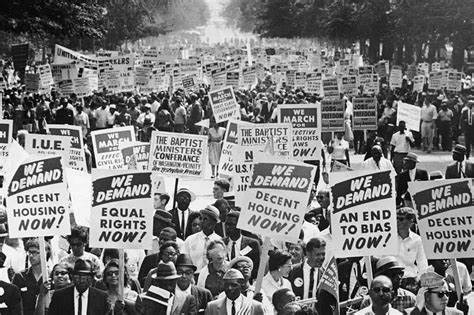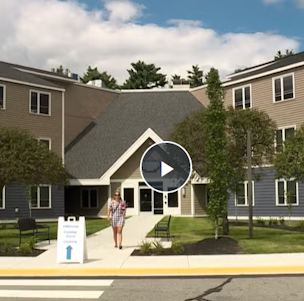Tin mới nhất
Thông báo công cộng

Cơ quan Nhà ở Westbrook tự hào ăn mừng, thúc đẩy, và tuân thủ Nhà ở công bằng của Đạo luật Dân quyền của 1968 Như chúng tôi thừa nhận Đạo luật Nhà ở Công bằng và Chủ tịch Lyndon Johnson, phản ứng về sự cần thiết của người dân Hoa Kỳ. ‘Khi khi Rev. Tiến sĩ. Martin Luther King, Jr. bị ám sát vào tháng Tư 4, 1968, Tổng thống Lyndon Johnson đã sử dụng thảm kịch quốc gia này để thúc giục dự luật phê duyệt của quốc hội nhanh chóng. Kể từ khi 1966 Mở nhà ở ở Chicago, Tiến sĩ. Tên vua đã được liên kết chặt chẽ với luật nhà ở công bằng. Tổng thống Johnson đã xem hành động này là một đài tưởng niệm phù hợp với công việc cuộc sống của người đàn ông, và muốn có hành động được thông qua trước Tiến sĩ. Tang lễ Vua ở Atlanta. Tổng thống Lyndon Johnson ký Đạo luật Nhà ở Công bằng của 1968.
Hành động nhà ở công bằng của 1968 bị cấm phân biệt đối xử liên quan đến việc bán hàng, Cho thuê và tài trợ cho nhà ở dựa trên chủng tộc, tôn giáo, nguồn gốc quốc gia hoặc tình dục. Dự định theo dõi Đạo luật Dân quyền của 1964, Dự luật là chủ đề của một cuộc tranh luận gây tranh cãi tại Thượng viện, nhưng đã được Hạ viện thông qua nhanh chóng trong những ngày sau vụ ám sát lãnh đạo dân quyền Martin Luther King, Jr. Đạo luật Nhà ở Công bằng là thành tựu lập pháp lớn cuối cùng của thời đại Dân quyền. [nguồn: Đạo luật nhà ở công bằng 1968, Liên bang & Sự định nghĩa | LỊCH SỬ ]
Lịch sử nhà ở công bằng
Vào tháng Tư 11, 1968, Tổng thống Lyndon Johnson đã ký Đạo luật Dân quyền của 1968, có nghĩa là theo dõi Đạo luật Dân quyền của 1964. Các 1968 Đạo luật được mở rộng theo các hành vi trước đây và bị cấm phân biệt đối xử liên quan đến việc bán hàng, tiền thuê, và tài trợ cho nhà ở dựa trên chủng tộc, tôn giáo, nguồn gốc dân tộc, tình dục, (và như đã sửa đổi) Điểm chấp và tình trạng gia đình. Tiêu đề VIII của Đạo luật còn được gọi là Đạo luật Nhà ở Công bằng (của 1968).
Việc ban hành Đạo luật Nhà ở Hội chợ Liên bang vào tháng Tư 11, 1968 Chỉ đến sau một hành trình dài và khó khăn. Từ 1966-1967, Quốc hội thường xuyên được coi là dự luật nhà ở công bằng, nhưng đã không thu được đa số đủ mạnh cho đoạn văn của nó. Tuy nhiên, Khi Rev. Tiến sĩ. Martin Luther King, Jr. bị ám sát vào tháng Tư 4, 1968, Tổng thống Lyndon Johnson đã sử dụng thảm kịch quốc gia này để thúc giục dự luật phê duyệt của quốc hội nhanh chóng. Kể từ khi 1966 Mở nhà ở ở Chicago, Tiến sĩ. Tên vua đã được liên kết chặt chẽ với luật nhà ở công bằng. Tổng thống Johnson đã xem hành động này là một đài tưởng niệm phù hợp với công việc cuộc sống của người đàn ông, và muốn có hành động được thông qua trước Tiến sĩ. Tang lễ Vua ở Atlanta.
Một vấn đề quan trọng khác trong khoảng thời gian này là danh sách thương vong ngày càng tăng từ Việt Nam. Những cái chết ở Việt Nam đã trở nên nặng nề nhất đối với trẻ, Bộ binh Mỹ gốc Phi và Tây Ban Nha. Tuy nhiên, Trên mặt trận nhà, Những gia đình nam giới này không thể mua hoặc thuê nhà. Các tổ chức chuyên ngành như NAACP, Diễn đàn GI, Hiệp hội các nhà môi giới bất động sản quốc gia (Nareb) và Ủy ban Quốc gia chống phân biệt đối xử trong nhà ở vận động mạnh cho Thượng viện thông qua Đạo luật Nhà ở Công bằng và khắc phục sự bất công này. Thượng nghị sĩ Edward Brooke và Edward Kennedy của Massachusetts đã tranh luận sâu sắc cho việc thông qua luật này. Đặc biệt, Thượng nghị sĩ Brooke, Người Mỹ gốc Phi đầu tiên từng được bầu vào Thượng viện bằng cách bỏ phiếu phổ biến, nói cá nhân về sự trở lại của anh ấy từ Thế chiến II và không có khả năng cung cấp một ngôi nhà mà anh ấy lựa chọn cho gia đình mới của anh ấy vì chủng tộc của anh ấy.
Với các thành phố bạo loạn sau khi Tiến sĩ. King Assassination Assassination, và sự phá hủy gắn kết ở mọi vùng của Hoa Kỳ, Những lời của Tổng thống Johnson và các nhà lãnh đạo quốc hội đã rung chuông lý do cho Hạ viện, người sau đó đã thông qua Đạo luật Nhà ở Công bằng. Mà không có tranh luận, Thượng viện đã đi theo Nhà trong Đạo luật, Tổng thống Johnson sau đó đã ký thành luật.
Quyền chỉ định các quan chức đầu tiên điều hành Đạo luật đã rơi vào người kế nhiệm của Tổng thống Johnson, Richard Nixon. Tổng thống Nixon khai thác sau đó là Thống đốc Michigan, George Romney, Đối với chức vụ của Bộ trưởng Nhà ở và Phát triển Đô thị. Trong khi phục vụ với tư cách là thống đốc, Thư ký Romney đã vận động thành công để phê chuẩn một điều khoản hiến pháp của tiểu bang bị cấm phân biệt đối xử trong nhà ở. Tổng thống Nixon cũng bổ nhiệm Samuel Simmons làm thư ký trợ lý đầu tiên cho cơ hội nhà ở bình đẳng.
Khi tháng Tư 1969 tới nơi, HUD không thể chờ đợi để kỷ niệm ngày 1 năm của Act. Trong năm khai mạc đó, HUD đã hoàn thành sổ tay hoạt động lĩnh vực tiêu đề VIII, và đưa ra một quy trình khiếu nại chính thức. Trong thời trang thực sự lễ hội, HUD đã tổ chức một sự kiện Gala trong phòng khiêu vũ lớn của khách sạn New York. Từ khắp nơi trên toàn quốc, Những người ủng hộ và chính trị gia đã chia sẻ trong buổi tối tuyệt vời này, bao gồm một trong những tổ chức bắt đầu tất cả — Ủy ban quốc gia chống phân biệt đối xử trong nhà ở.
Trong những năm tiếp theo, Truyền thống kỷ niệm tháng nhà ở công bằng ngày càng lớn hơn. Các thống đốc bắt đầu đưa ra những tuyên bố được chỉ định là tháng tư là “Tháng nhà ở công bằng,” và các trường học trên cả nước được tài trợ các cuộc thi poster và bài luận tập trung vào các vấn đề nhà ở công bằng. Những người chiến thắng trong khu vực từ các cuộc thi này thường được hưởng các chuyến đi đến Washington, DC cho các sự kiện với HUD và đại diện quốc hội của họ.
Dưới thời cựu thư ký James T. Lynn và Carla Hills, với sự hợp tác của Hiệp hội người xây nhà quốc gia, Hiệp hội môi giới quốc gia, và Hội đồng Quảng cáo Hoa Kỳ, các nhóm này đã áp dụng nhà ở công bằng làm chủ đề của họ và được cung cấp “miễn phí” không gian bảng quảng cáo trên toàn quốc. Những bảng quảng cáo lớn 20 feet x 14 feet này đã đặt thông điệp nhà ở công bằng trong các khu phố, trung tâm công nghiệp, vùng nông nghiệp và lõi đô thị. Mọi khu vực cũng có những lễ kỷ niệm riêng, các cuộc họp, Bữa tối, Các cuộc thi và chương trình truyền hình vô tuyến đã nổi bật với HUD, Các chuyên gia và quan chức nhà ở công bằng nhà nước và tư nhân. Những lễ kỷ niệm này tiếp tục tinh thần đằng sau đoạn văn ban đầu của Đạo luật, và được nhớ đến bởi những người đã ở đó ngay từ đầu. [nguồn: Lịch sử nhà ở công bằng – HUD | Hud.gov / La Mỹ. Bộ Nhà ở và Phát triển đô thị (HUD) ]














